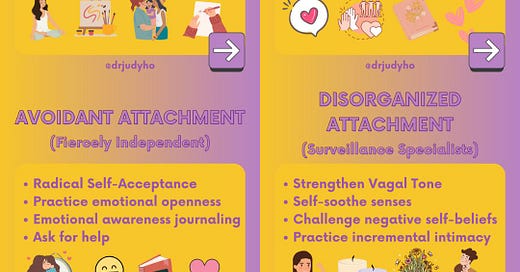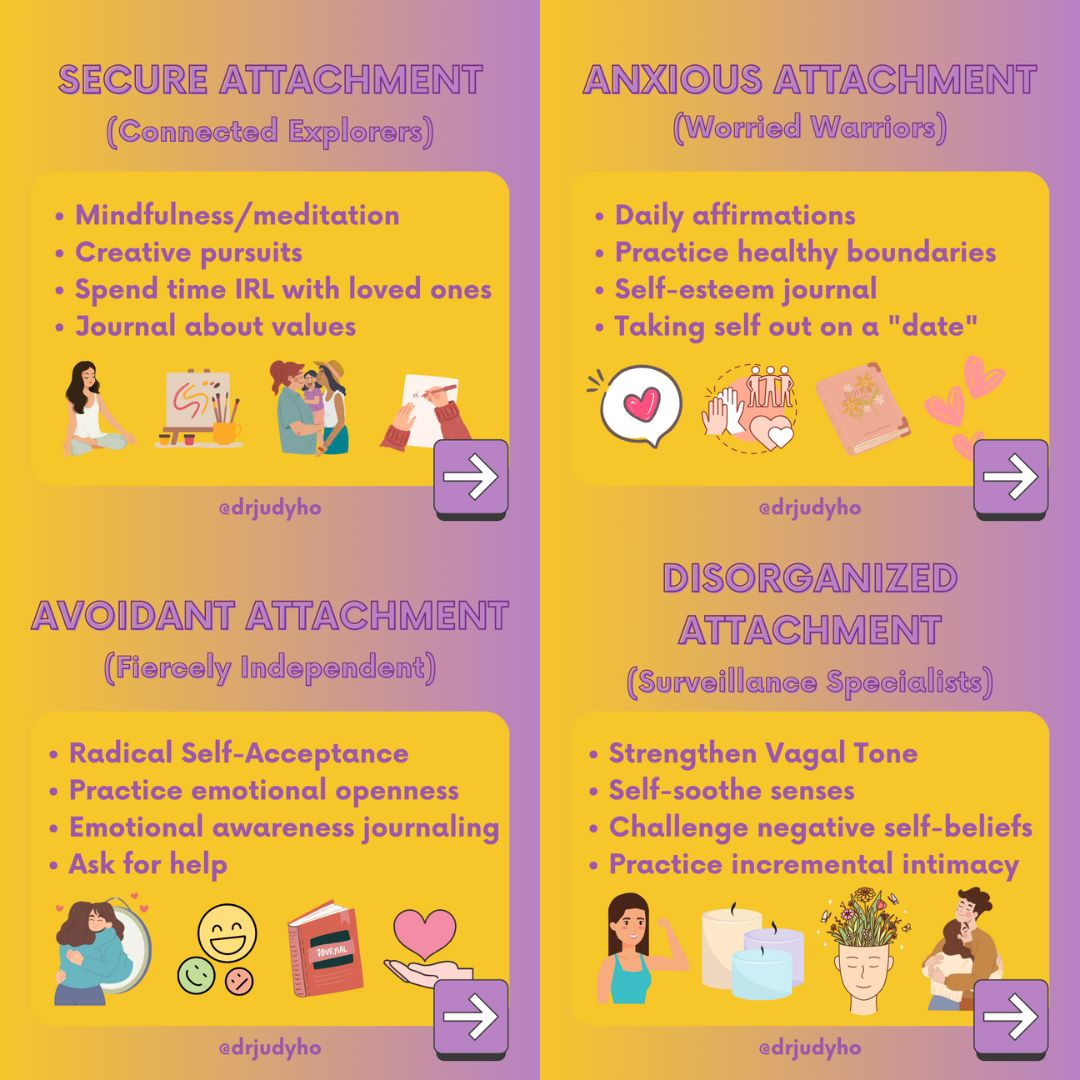Does Your Psychological Operating System Need a Tune-Up?
If you have trouble pushing forward, your operating system may need a revamp.
Hi dear friends:
Below is an excerpt from my recent article in:
If you’re having trouble forging ahead—excelling at work, reaching goals you set for yourself, finding yourself in a cycle of self-sabotage, or being prone to chronic burnout—it’s quite possible that your operating system needs a revamp and tune-up. I’m not talking about your computer’s operating system, I’m talking about your psychological operating system with respect to your attachment style.
I’ve learned through research and clinical experience that attachment is an aspect of human development; it affects our overall well-being—including our ability to reach goals, harness motivation, and be productive.
Attachment experiences create templates for how you experience and interpret your social world and, by extension, how you take care of your needs and help you to predict how others are likely to respond to you. Secure attachment relationships typically result in more positive and balanced internal working models (or psychological operating systems – templates and rules of thumb for how you should go about life), meaning that you’re more likely to hold yourself in high esteem, have satisfactory and lasting relationships, and believe that you deserve good things in life. Insecure attachment generally leads to lower self-esteem, a shaky sense of identity, and doubts about self-worth and whether good things should happen to you—including workplace success.
Each attachment style comes with its own operating system characterized by 4 self-statements, which likely first arose when you tried to cope with certain challenges in childhood. These characteristics can be seen in your working models, which show up as self-statements that reflect how you think about yourself and the way you go about life. Initially, they may have allowed you to cope psychologically and survive stress and turmoil in your past, but over time, they may have limited your behavior and established extreme ways of dealing with life. Becoming familiar with these self-statements is an important first start for being able to make changes.
For avoidantly attached - what I call Fiercely Independents, your operating system typically contains one or more of the below self-statements:
· “I’m only as good as my last achievement.”
· “I must be in control at all times.”
· “I keep others at arm’s length.”
· “When the going gets tough, I go it alone.”
Read about the three other attachment styles and their operating systems here!
An important part of healing from self-statements and operating systems that are no longer working for you is to prioritize self-care activities every single day. Did you know that your attachment styles relate to the type of self-care you are most likely to benefit from and need? Check out the graphic below for ideas that pertain most to your attachment style.
You can find out which style you are by taking my attachment quiz.
Last question for you: What’s one self-care activity you can do today to nurture yourself?
I hope this was helpful on your wellness journey,
Dr. Judy
Pre-Order here: https://bit.ly/3MvuvvF (Use Code NEWRULES20)
About me:
Dr. Judy Ho, Ph. D., ABPP, ABPdN is a triple board certified and licensed Clinical and Forensic Neuropsychologist, a tenured Associate Professor at Pepperdine University, television and podcast host, and author of Stop Self-Sabotage. An avid researcher and a two-time recipient of the National Institute of Mental Health Services Research Award, Dr. Judy maintains a private practice where she specializes in comprehensive neuropsychological evaluations and expert witness work. She is often called on by the media as an expert psychologist and is also a sought after public speaker for universities, businesses, and organizations.
Dr. Judy received her bachelor's degrees in Psychology and Business Administration from UC Berkeley, and her masters and doctorate from SDSU/UCSD Joint Doctoral Program in Clinical Psychology. She completed a National Institute of Mental Health sponsored fellowship at UCLA's Semel Institute.







